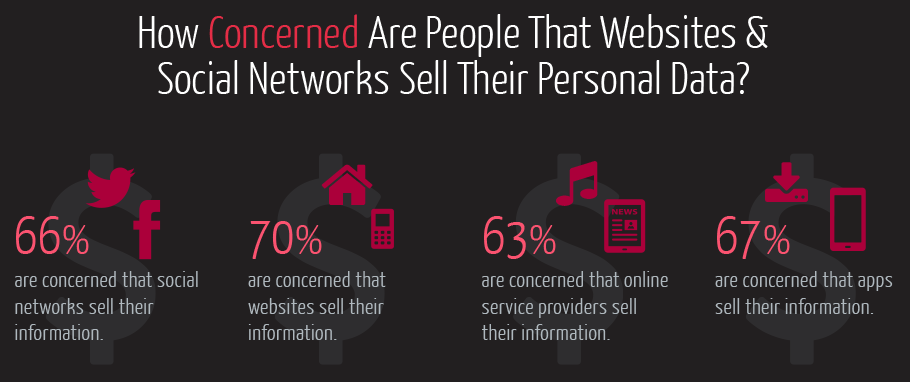 If you knew that your donors and activists were very concerned about their privacy online, what would you do to better protect their personal data that you have stored in your databases? Well you better start thinking about it. Today, a new national poll was released that showed almost three-fourths of Americans worry about how much personal information is available online.
If you knew that your donors and activists were very concerned about their privacy online, what would you do to better protect their personal data that you have stored in your databases? Well you better start thinking about it. Today, a new national poll was released that showed almost three-fourths of Americans worry about how much personal information is available online.
More than half of Americans also feel that they can't trust social media sites like Facebook and Twitter to keep their personal information, buying habits, and political beliefs confidential, according to the poll that my firm Rad Campaign, Lincoln Park Strategies, and Craig Newmark of craigconnects released.
According to the survey of 1007 people 18+, mistrust of websites and social media and concerns about privacy increase as people get older. People over 65 expressed the least trust in social media, and were most certain their data was being sold. It was this demographic who felt most strongly that privacy laws need to be strengthened.
As a nonprofit, it's critical that you're aware of these issues when collecting and using the data of your constituents.
The data from the poll shows very clearly that Americans feel manipulated and exposed by the websites they frequent. While that may not stop them from using Facebook and Twitter, or your website, for example, they are clearly calling for more safeguards around their personal data.
If you're collecting your audience's personal data, it's important that you're aware of how you're using it, the capacity in which you're using it, and clearly disclosing how the data is being used. It should not be buried in some legal jargon that real people can't understand.
Here are a few ways you can make sure you're respecting your constituents' privacy:
- Fully disclose what you plan on doing with their data. How will it be used? Will any of the data be shared with 3rd parties?
- Disclose what you will do to protect and secure their data.
- Make sure you're honoring your Terms of Service, and make the language accessible to your audiences.
What else can you do to make sure that you're protecting your constituents data and respecting their online privacy?
Check out the full infographic, and survey data at www.onlineprivacydata.org.




COMMENTS